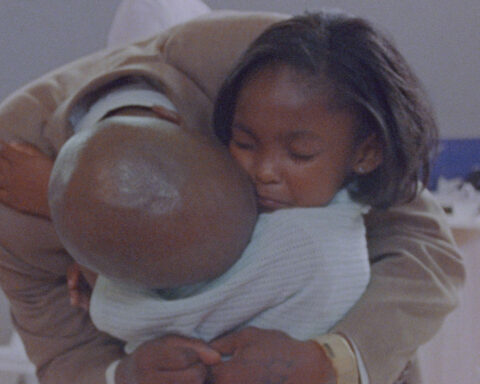The Death of Life of John F. Donovan
(Canada/UK, 107 min.)
Dir. Xavier Dolan, Writ. Xavier Dolan, Jacob Tierney
Starring: Kit Harrington, Jacob Tremblay, Natalie Portman, Thandie Newton, Ben Schnetzer, Susan Sarandon, Sarah Gadon, Emily Hampshire, Kathy Bates
Programme: Special Presentations (World Premiere)
I really feel for Xavier Dolan. When critics eviscerated his 2016 film It’s Only the End of the World, many of them, particularly the Americans, made a point of panning him personally while ripping apart the claustrophobic family drama. Making it personal shouldn’t be part of the job. The consequences of these deep digs and hot takes are evident in Dolan’s latest film, and first English-language feature, The Death and Life of John F. Donovan. This film honestly never had a chance. Debuting at TIFF after nearly a year of editing that began when photography wrapped in September 2016, John F. Donovan is a hot mess of great scenes that never quite come together. One wishes the film were the sum of its parts.
Two years and a Jessica Chastain later, the film displays the laborious scars of its notorious post-production. There are snippets of this and snippets of that, and things that are totally random or seemingly discarded. (Wasn’t Adele supposed to be in this movie too?) At best, John F. Donovan is a sprawling Magnolia wannabe that features a number of admirable performances working out a deeply personal character study about the cold ugly reality of celebrity. The film could have easily lost half an hour by dispensing with the Bridges of Madison County -style framing device in which an interviewer (Thandie Newton) meets with an actor/author, Rupert Turner (Ben Schnetzer), to discuss his new book. Rupert’s book is a series of correspondence between his 11-year-old self and late actor John F. Donovan. While Newtown and Schnetzer have fine chemistry and hit the dynamic of the bumpy celebrity interview, the device doesn’t really add to the story. It’s not an interview so much as a monologue that conveniently lets Rupert set the pieces in motion with expository scripting.
The story develops two-fold as 11-year-old Rupert, played by Room’s Jacob Tremblay, struggles with bullies at school while his mom (Natalie Portman) remains ignorant of the pen pal relationship he enjoys with the TV icon. On the other side of the story is John F. Donovan, played by Game of Thrones’ Kit Harrington, a conflicted actor struggling with fame and his closeted sexuality while balancing his just-for-show girlfriend (Emily Hampshire), a secret beau (Jared Keeso), and an exasperating alcoholic mother (Susan Sarandon). The storylines draw out the alienation that Rupert and Jonathan experience daily, feeling alone and misunderstood in this world while enjoying the solace offered by their friendly letters. Rupert, back in the present-day frame, leads the stories to converge with the events that contributed to John’s premature death and the younger boy’s need to publish their correspondences.
There is a lot going on in this film as Dolan introduces an unnavigable web of characters that includes an under-used Sarah Gadon as Johnathan’s teen TV-show co-star and Kathy Bates in a flyby role as John’s manager. To her credit, though, Bates has the best scene of the film as she makes her second or third appearance very late in the drama to renounce the callousness of celebrity culture that has poisoned John’s relationship with Rupert. Michael Gambon also pops up and delivers a completely random monologue as an elderly man who claims to be Rupert’s grandfather. It’s a nice piece of writing and acting that makes no logical sense, yet somehow remains a highlight of the film.
Dolan films much of John F. Donovan in the intimate and emotionally charged close-ups that have become one of his recent signatures. Working with his usual collaborator André Turpin, Dolan gets right in the faces of these Hollywood stars and finds nuggets of pure searing emotion. A few of them (cough, cough, Susan Sarandon) are clearly channeling Dolan’s Mommy star Anne Dorval and elevate several key scenes as the relationship between John and his mother is the most effortless heartbeat of the film. There’s even a musical moment typical of the Dolan oeuvre as John, his brother, and his mom rock out in a moment of bubble bath euphoria to Lifehouse’s power ballad “Hanging by a Moment.” Donovan hits its stride in one of Dolan’s finest scenes as he holds on Sarandon long after the music fades as John’s mother cherishes this memory of her son. Nobody captures the unbridled bliss of late 90s’/early 2000s rock anthems quite like Dolan does.
There’s a certain irony, then, when The Verve’s “Bittersweet Symphony” closes out the film. The Death and Life of John F. Donovan is finally here to bare its soul to a restless audience. The film rewards with intermittently exceptional performances and shards of a film that might have known greatness. Every scene, cut, line, and performance also seems second guessed, as nothing quite comes together as it should have or could have. It’s bittersweet, though, since the labour is finally over—both for Dolan and for us.









